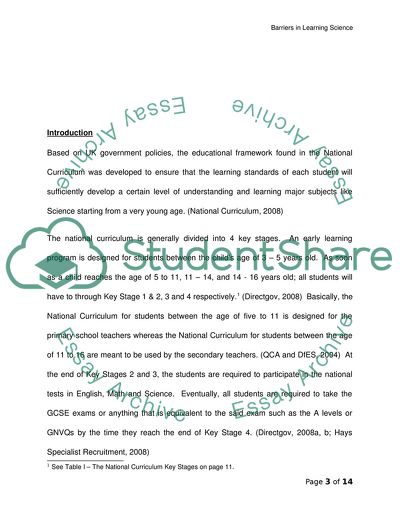Cite this document
(Barriers in Learning Science Research Paper Example | Topics and Well Written Essays - 2250 words, n.d.)
Barriers in Learning Science Research Paper Example | Topics and Well Written Essays - 2250 words. Retrieved from https://studentshare.org/education/1712954-barriers-in-learning-science
Barriers in Learning Science Research Paper Example | Topics and Well Written Essays - 2250 words. Retrieved from https://studentshare.org/education/1712954-barriers-in-learning-science
(Barriers in Learning Science Research Paper Example | Topics and Well Written Essays - 2250 Words)
Barriers in Learning Science Research Paper Example | Topics and Well Written Essays - 2250 Words. https://studentshare.org/education/1712954-barriers-in-learning-science.
Barriers in Learning Science Research Paper Example | Topics and Well Written Essays - 2250 Words. https://studentshare.org/education/1712954-barriers-in-learning-science.
“Barriers in Learning Science Research Paper Example | Topics and Well Written Essays - 2250 Words”. https://studentshare.org/education/1712954-barriers-in-learning-science.


